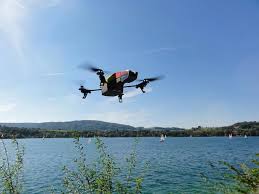Government Grants
Business Grants
Home Owner Programs
Federal Programs
About Us
PEPFAR DRC Community-Led Monitoring (CLM) Program
The U. S. Department of State, U. S. Embassy in Kinshasa - Democratic Republic of Congo through the U. S. President’s Emergency Plan for AIDS Relief (PEPFAR) Coordination Office (PCO) is pleased to announce an open Notification of Funding Opportunity (NOFO) for organizations to submit applications
that support Community - led Monitoring (CLM) activities, to be implemented in close collaboration with local Community-based organizations and other civil society groups, networks of key populations (KP), people living with HIV (PLHIV), youth and adolescents including children and other HIV-affected groups.
The CLM program will be implemented in the three PEPFAR provinces including Kinshasa, Haut-Katanga and Lualaba.
Community-led monitoring or CLM is a routinized process initiated and implemented by local HIV-positive and HIV-affected communities, community-based organizations and other civil society groups that identifies HIV service delivery successes, diagnoses problems, uses quantitative and qualitative data to overcome barriers and ensure that HIV service beneficiaries receive optimal client-centered services.
The intention of CLM is for local community leadership to get inputs from recipients and providers of HIV services, including key populations and underserved groups, in a routine and systematic manner and translate their findings into action and change in collaboration with host governments and health systems.
CLM is a tool within the community engagement process, a strategic collaboration of multiple partnerships within a designated geographic location.
CLM leverages community engagement to empower community members to identify successes, diagnose problems, use data-driven approaches to overcome barriers, and ensure beneficiaries receive optimal client-centered services in a productive, collaborative, respectful, and solutions-oriented manner.
This community-driven approach to addressing health challenges often evolves into advocacy, whether driven by the individual, community, organizations, or institutions.
The CLM program is funded through the U. S. President’s Emergency Plan for AIDS Relief (PEPFAR).
The goal of PEPFAR in DRC is to support efforts to achieve HIV epidemic control through implementation of evidence-based interventions to drive progress in HIV prevention, care and treatment and ultimately, save lives.
Through the PEPFAR Coordination Office, the U. S. Embassy in Kinshasa administers this Community grants program and is seeking proposals from registered local Community-based organizations and other civil society groups, networks of key populations (KP), people living with HIV (PLHIV), youth and adolescents including children and other HIV-affected groups, or community entities that gather quantitative and qualitative data about HIV services and whose mission and activities focuses on HIV programming.
CLM plays key role to ensuring availability, accessibility, affordability, acceptability, and delivery of timely and quality HIV care and services.
CLM will raise public awareness on the rights of PLHIV, KP groups, youth and adolescents and other affected communities, will empower beneficiaries and affected communities to speak out, to increase health literacy, to expand engagement with health service providers, to support demand creation, on one hand; and on the other hand, CLM will hold decisions makers accountable for executing changes to improve HIV service delivery.
CLM data will be collected using standardized tools and synthesized through a variety of methods that reveal insights from communities about problems and solutions to health and HIV service delivery at:
the facility, community, sub-national and national levels.
Thus, CLM data builds evidence on what works well, what is not working and what needs to be improved, with suggestions for targeted action to improve outcomes.
Monitoring data should reflect an ‘added value’ and not duplicate collection of routine data already available to PEPFAR, through its standard reporting.
‘Added value’ monitoring data includes, but not limited to information from beneficiaries about their experience with the health facility, information about barriers and enablers to access and retention in services etc.
CLM mechanisms must be routine to ensure follow up and continuous improvement for sustainability.
Results from CLM will be shared with all the stakeholders including host governments, health systems, PEPFAR implementing partners and the PEPFAR team on a regular and systematic basis (monthly, quarterly, and annually), for informing decisions, to improve time and quality service delivery.
The CLM program will be implemented in the three PEPFAR provinces including Kinshasa, Haut-Katanga and Lualaba.
Community-led monitoring or CLM is a routinized process initiated and implemented by local HIV-positive and HIV-affected communities, community-based organizations and other civil society groups that identifies HIV service delivery successes, diagnoses problems, uses quantitative and qualitative data to overcome barriers and ensure that HIV service beneficiaries receive optimal client-centered services.
The intention of CLM is for local community leadership to get inputs from recipients and providers of HIV services, including key populations and underserved groups, in a routine and systematic manner and translate their findings into action and change in collaboration with host governments and health systems.
CLM is a tool within the community engagement process, a strategic collaboration of multiple partnerships within a designated geographic location.
CLM leverages community engagement to empower community members to identify successes, diagnose problems, use data-driven approaches to overcome barriers, and ensure beneficiaries receive optimal client-centered services in a productive, collaborative, respectful, and solutions-oriented manner.
This community-driven approach to addressing health challenges often evolves into advocacy, whether driven by the individual, community, organizations, or institutions.
The CLM program is funded through the U. S. President’s Emergency Plan for AIDS Relief (PEPFAR).
The goal of PEPFAR in DRC is to support efforts to achieve HIV epidemic control through implementation of evidence-based interventions to drive progress in HIV prevention, care and treatment and ultimately, save lives.
Through the PEPFAR Coordination Office, the U. S. Embassy in Kinshasa administers this Community grants program and is seeking proposals from registered local Community-based organizations and other civil society groups, networks of key populations (KP), people living with HIV (PLHIV), youth and adolescents including children and other HIV-affected groups, or community entities that gather quantitative and qualitative data about HIV services and whose mission and activities focuses on HIV programming.
CLM plays key role to ensuring availability, accessibility, affordability, acceptability, and delivery of timely and quality HIV care and services.
CLM will raise public awareness on the rights of PLHIV, KP groups, youth and adolescents and other affected communities, will empower beneficiaries and affected communities to speak out, to increase health literacy, to expand engagement with health service providers, to support demand creation, on one hand; and on the other hand, CLM will hold decisions makers accountable for executing changes to improve HIV service delivery.
CLM data will be collected using standardized tools and synthesized through a variety of methods that reveal insights from communities about problems and solutions to health and HIV service delivery at:
the facility, community, sub-national and national levels.
Thus, CLM data builds evidence on what works well, what is not working and what needs to be improved, with suggestions for targeted action to improve outcomes.
Monitoring data should reflect an ‘added value’ and not duplicate collection of routine data already available to PEPFAR, through its standard reporting.
‘Added value’ monitoring data includes, but not limited to information from beneficiaries about their experience with the health facility, information about barriers and enablers to access and retention in services etc.
CLM mechanisms must be routine to ensure follow up and continuous improvement for sustainability.
Results from CLM will be shared with all the stakeholders including host governments, health systems, PEPFAR implementing partners and the PEPFAR team on a regular and systematic basis (monthly, quarterly, and annually), for informing decisions, to improve time and quality service delivery.
Agency: Department of State
Office: U.S. Mission to the Democratic Republic of Congo
Estimated Funding: $300,000
Office: U.S. Mission to the Democratic Republic of Congo
Estimated Funding: $300,000
Obtain Full Opportunity Text:
https://grants.nih.gov/grants/guide/rfa-files/RFA-MH-25-130.html
Additional Information of Eligibility:
Eligible applicants are local Community-based organizations and other civil society groups, networks of key populations (KP), people living with HIV (PLHIV), youth and adolescents including children and other HIV-affected groups.
Full Opportunity Web Address:
http://grants.nih.gov/grants/guide/rfa-files/RFA-MH-25-130.html
Contact:
Agency Email Description:
KinshasaPEPFAR@state.gov
Agency Email:
Date Posted:
2024-04-17
Application Due Date:
Archive Date:
2024-07-18
Social Entrepreneurship
Spotlight
Ashoka Unveils Gulf Program to Promote Social Entrepreneurship

Ashoka, a global platform for social innovation, introduced the Arab World Social Entrepreneurship Programme (ASEP) to support local social entrepreneurs in scaling up their operations in three key areas – healthcare, environment and women participation for inclusive growth.

